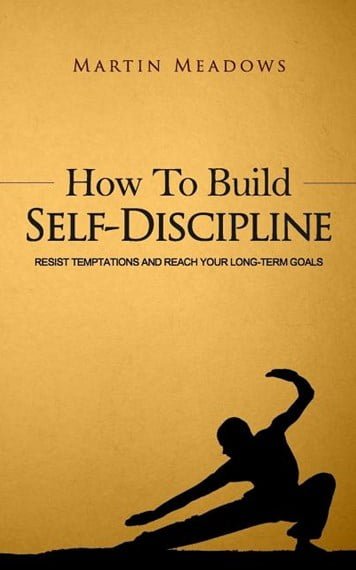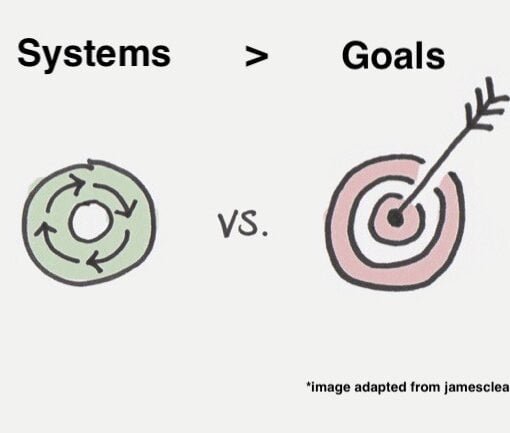
Self-discipline is a cornerstone of success, and Martin Meadows’ How to Build Self-Discipline offers practical advice to help you master this essential skill. Below are some of the main concepts from the book, summarised to give you a glimpse into the transformative power of self-discipline.
The Foundation of Self-Discipline
Self-discipline isn’t about punishing yourself or living a joyless life. It’s about making choices that align with your long-term goals, even when it’s challenging. Meadows emphasises that self-discipline is a skill that can be developed with practice and patience.
Do Not Count on Motivation, Count on Discipline
Motivation is a fleeting feeling. It comes and goes, often without warning. Meadows stresses that to build self-discipline, one must not rely on motivation alone. Instead, count on discipline – the steadfast commitment to doing what needs to be done, regardless of how you feel in the moment. Discipline is like a muscle that strengthens with use, becoming more reliable over time. This mindset shift has been crucial for me, especially during the early mornings and challenging tasks.
Embracing Discomfort
One of the key concepts Meadows explores is the importance of embracing discomfort. Growth often occurs outside of our comfort zones. By intentionally putting yourself in uncomfortable situations, such as taking cold showers or tackling difficult tasks, you build resilience and mental toughness.
- Cold Showers: Start with a warm shower and gradually decrease the temperature until it’s cold. This practice can improve focus and increase dopamine levels. The first time I tried this, it felt like I was swimming in Antarctica. But over time, cold showers became invigorating. They sharpened my focus and, interestingly, boosted my dopamine levels, making me feel more alert and motivated.
- Tackling Hard Tasks: Choose a challenging task and break it down into smaller, manageable steps. Completing tough tasks boosts confidence and self-discipline. For this, I decided to take on a backyard makeover. This included sealing and painting the entire area including all the fences. It was daunting, but breaking it down into daily tasks made it achievable. The sense of accomplishment I felt upon completion was incredibly rewarding
Focusing on the Process
Meadows highlights the importance of focusing on the process rather than fixating on the end goal. This approach encourages continuous improvement and helps maintain motivation.
- Process-Oriented Mindset: Concentrate on how you perform each task. Make small, incremental changes to improve efficiency and effectiveness. I adopted this approach in my daily routine. Whether it was working on projects or personal tasks, I focused on refining my methods. This not only improved my efficiency but also made the tasks more enjoyable.
Mastering Honesty
Honesty, with oneself and others, is crucial for building self-discipline. Meadows suggests committing to absolute honesty to foster integrity and accountability.
- Honest Reflections: Regularly reflect on your actions and decisions, ensuring they align with your values and goals. Mastering honesty was a challenging yet liberating experience. It required a lot of self-reflection and courage, but it significantly improved my relationships and self-respect.
The Power of Not Complaining
Complaining can be a major hindrance to self-discipline. Meadows advises shifting your focus from complaining to taking actionable steps.
- Action Over Complaints: When faced with a challenge, resist the urge to complain. Instead, identify what you can do to improve the situation. I made a conscious effort to stop complaining and instead focus on the next actionable step. This change in mindset helped me become more solution-oriented and significantly reduced my stress levels.
Reject Therapy
Practising rejection therapy involves deliberately seeking rejection to build resilience and reduce the fear of failure.
- Seek Rejection: Make requests with the expectation of hearing “no”. Over time, this practice desensitises you to rejection and boosts confidence. Initially, the fear of rejection was daunting. But as I continued to request things I anticipated would be denied, I became more comfortable with the concept of rejection. This exercise significantly boosted my confidence and resilience.
Intermittent Fasting and Diet
Meadows also explores the benefits of intermittent fasting and a ketogenic diet in building self-discipline.
- Intermittent Fasting: Start with a manageable fasting window and gradually extend it. This practice can improve energy levels and mental clarity. I began with a 10-hour fasting window and gradually extended it to 20 hours. Coupled with a keto diet, this regimen boosted my energy levels and mental clarity. The discipline required to stick to this routine spilled over into other areas of my life.
Meditation and Mindfulness
Meditation is another powerful tool for developing self-discipline. It enhances focus, reduces stress, and promotes emotional regulation.
- Daily Meditation: Begin with short, daily sessions and gradually increase the duration. Meditation helps cultivate a disciplined mind. I attended a 10-day silent meditation camp in the Blue Mountains, ite was years ago before I read this book, which involved fasting, meditating, and complete disconnection from technology. This experience was transformative, teaching me the value of mindfulness and the power of a disciplined mind. (I might dedicate another blog post to this experience).
My Next Challenges
- Failure Therapy: Confronting my fear of failure is next on my list. Embracing failure as a learning opportunity will be crucial.
- Waking Up Early: I plan to become an early riser consistently, leveraging the quiet morning hours for productivity.
- Routine Exercise: Establishing a regular exercise routine will not only improve my physical health but also enhance my self-discipline.
Here are some of the inspiring quotes from the book:
- “Self-discipline is the ability to pursue what one thinks is right despite temptations to abandon it.”
- “The more disciplined you become, the easier life gets.”
- “Success is the sum of small efforts, repeated day in and day out.”
- “The pain of self-discipline will never be as great as the pain of regret.”
- “The ability to delay gratification is a reliable indicator of success.”
- “You don’t have to be great to start, but you have to start to be great.”
- “Discipline is choosing between what you want now and what you want most.”
Martin Meadows’ How to Build Self-Discipline offers a wealth of practical advice for anyone looking to improve their self-discipline. By embracing discomfort, focusing on the process, mastering honesty, and practising mindfulness, you can transform your habits and achieve your goals. Remember, self-discipline is a skill that grows stronger with practice, so start small, be consistent, and watch your progress unfold.
Sources
- How to Build Self-Discipline by Martin Meadows
- Intermittent Fasting
- Ketogenic Diet



